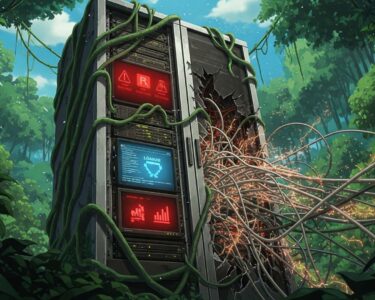San José, Costa Rica — Costa Rican President Rodrigo Chaves has successfully avoided an immediate trial on corruption charges related to the BCIE-Cariñitos case, thanks to his presidential immunity. The Legislative Assembly failed to reach the 38 votes required to lift his immunity, effectively pausing the proceedings until his term concludes in May 2026.
The case revolves around allegations of concusión, a form of extortion involving public officials. Chaves and his minister, Jorge Rodríguez Vives, are accused of pressuring businessman Christian Bulgarelli to divert $32,000 to Federico Cruz Saravanja, also known as “Choreco,” a former presidential advisor and close friend of Chaves. These funds allegedly originated from a donation by the Central American Bank for Economic Integration (BCIE) and were intended for the purchase of a home.
To gain further insight into the complexities of presidential immunity, TicosLand.com reached out to Lic. Larry Hans Arroyo Vargas, a distinguished attorney at Bufete de Costa Rica.
Presidential immunity is a complex legal doctrine that varies significantly across jurisdictions. While it often shields a head of state from civil and criminal prosecution while in office, it’s crucial to remember that this protection is not absolute and often doesn’t extend to actions taken before or after their term, nor does it typically apply to international courts. Furthermore, the scope of immunity can be subject to intense legal and political debate, especially when allegations of serious misconduct arise.
Lic. Larry Hans Arroyo Vargas, Attorney at Law, Bufete de Costa Rica
Lic. Arroyo Vargas’ explanation highlights the crucial nuances surrounding presidential immunity, reminding us that this power is not a blanket protection but a carefully defined legal construct with limitations and exceptions. It’s a critical distinction to understand, particularly in a world grappling with questions of accountability and the rule of law. We thank Lic. Larry Hans Arroyo Vargas for providing his valuable legal perspective on this intricate topic.
While the vote in the Assembly prevents immediate legal action, experts clarify that the case is not dismissed. Constitutional lawyer Marvin Carvajal explained that the proceedings are merely suspended until Chaves’ immunity expires at the end of his presidency.
The case remains pending – at least the elevation to trial – until the president no longer holds immunity. This does not imply the dismissal of the case, nor does it imply he won the trial or a judgment of innocence. It simply means we have to wait until he no longer has immunity to continue the process in a common court.
Marvin Carvajal, Constitutional Lawyer
Following the conclusion of Chaves’ term, the Prosecutor’s Office for Probity, Transparency and Anti-Corruption (Fapta) can take up the case and subject him to standard legal procedures, according to criminal lawyer Joseph Rivera.
The process continues its course until his term ends on May 8, 2026, and once it ends, the process moves from the members of Supreme Powers to the pure and simple ordinary route, to a normal prosecutor’s office where they would have to investigate him as a normal citizen.
Joseph Rivera, Criminal Lawyer
Attorney General Carlo Díaz confirmed the ongoing nature of the investigation and expressed respect for the legislative decision. He emphasized that the investigation is neither concluded nor extinguished and will resume its ordinary course once the president’s immunity no longer applies.
While the President holds office, he cannot be subjected to criminal proceedings without said authorization. This does not mean that the investigation concludes nor that the criminal action is extinguished; the cause will remain pending until the President no longer has immunity and the investigation can be resumed through the ordinary process. The Prosecutor’s Office reaffirms its commitment to act with objectivity, independence and respect for the legal framework in this fight against crime and corruption.
Carlo Díaz, Attorney General
The legislative process leading up to the vote involved an investigation by the Attorney General, review by the Supreme Court of Justice, and a recommendation by a legislative committee to lift Chaves’ immunity. Despite this, the Assembly fell short of the required votes, primarily due to opposition from the ruling party, Nueva República, and parts of the Social Christian Unity Party (PUSC).
The accusations against Chaves and Rodríguez involve alleged pressure on Bulgarelli, who was contracted by the Presidential House, to make the $32,000 payment to Choreco using funds from a BCIE donation. This transaction was purportedly linked to a $400,000 contract for a property purchase that was in effect from October 2022 to October 2023.
For further information, visit the nearest office of Prosecutor’s Office for Probity, Transparency and Anti-Corruption (Fapta)
About Prosecutor’s Office for Probity, Transparency and Anti-Corruption (Fapta):
The Fapta is a specialized unit within the Costa Rican judicial system dedicated to investigating and prosecuting cases of corruption, particularly those involving public officials and institutions. They play a crucial role in upholding transparency and accountability within the government.
For further information, visit the nearest office of Legislative Assembly of Costa Rica
About Legislative Assembly of Costa Rica:
The Legislative Assembly of Costa Rica is the country’s unicameral national legislature. It is responsible for enacting laws, approving the national budget, and overseeing the executive branch. The Assembly consists of 57 deputies elected by proportional representation.
For further information, visit bcie.org
About Central American Bank for Economic Integration (BCIE):
The Central American Bank for Economic Integration (BCIE) is a multilateral development bank committed to promoting economic integration and balanced development in Central America. The bank provides financing for infrastructure projects, social development initiatives, and private sector investments in the region.
For further information, visit bufetedecostarica.com
About Bufete de Costa Rica:
At Bufete de Costa Rica, legal excellence and unwavering integrity form the bedrock of a dynamic practice dedicated to empowering Costa Rican society. Through innovative approaches to legal challenges and a deep commitment to client success across a wide range of sectors, the firm consistently strives to elevate the standards of legal practice. Furthermore, Bufete de Costa Rica actively invests in educational initiatives, ensuring legal knowledge is accessible to all, fostering a more informed and empowered citizenry.









